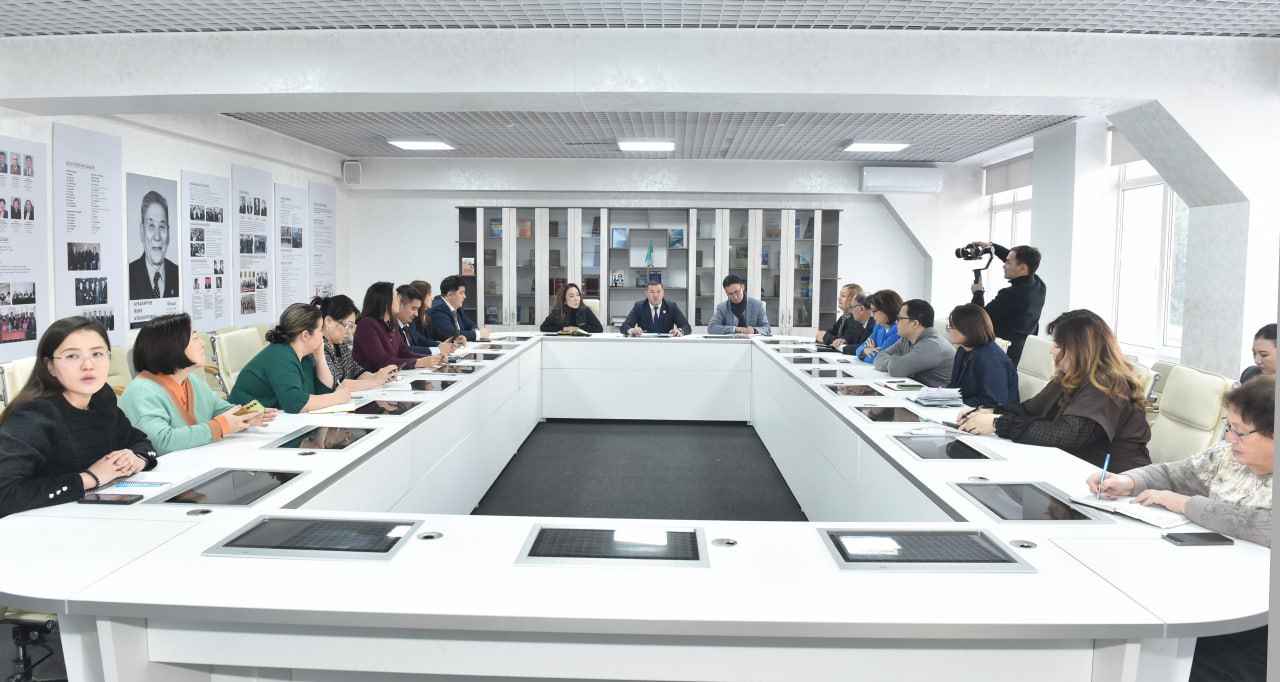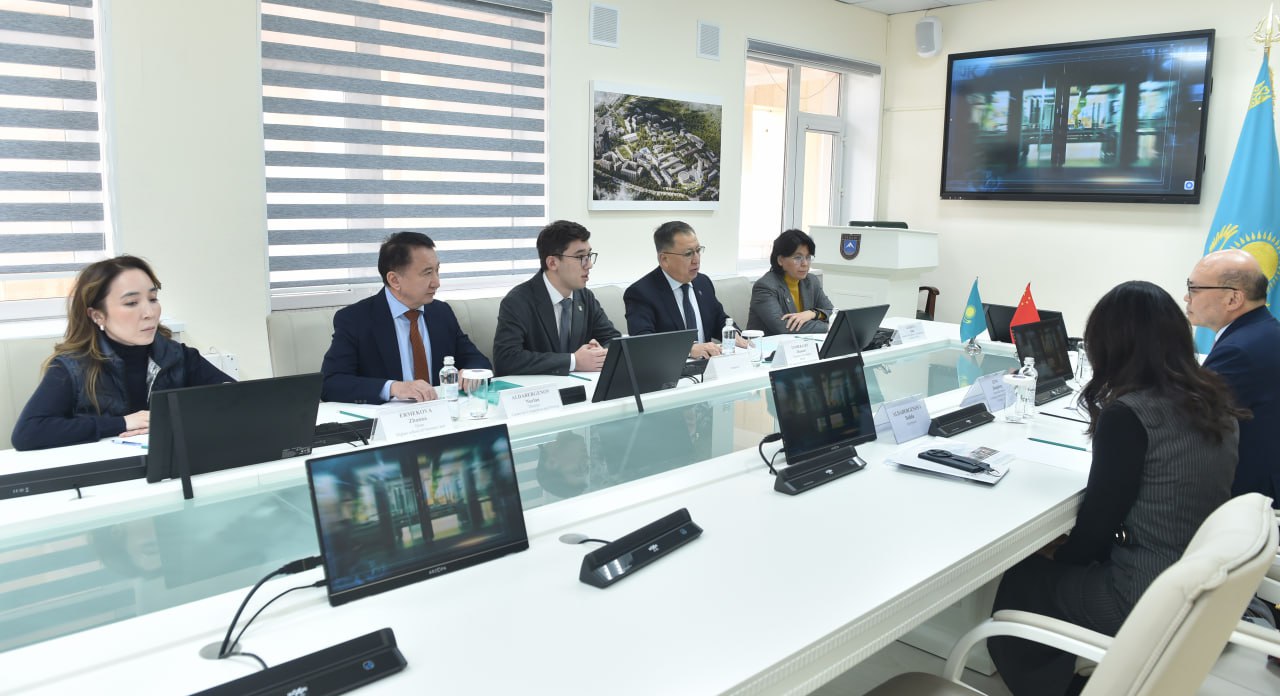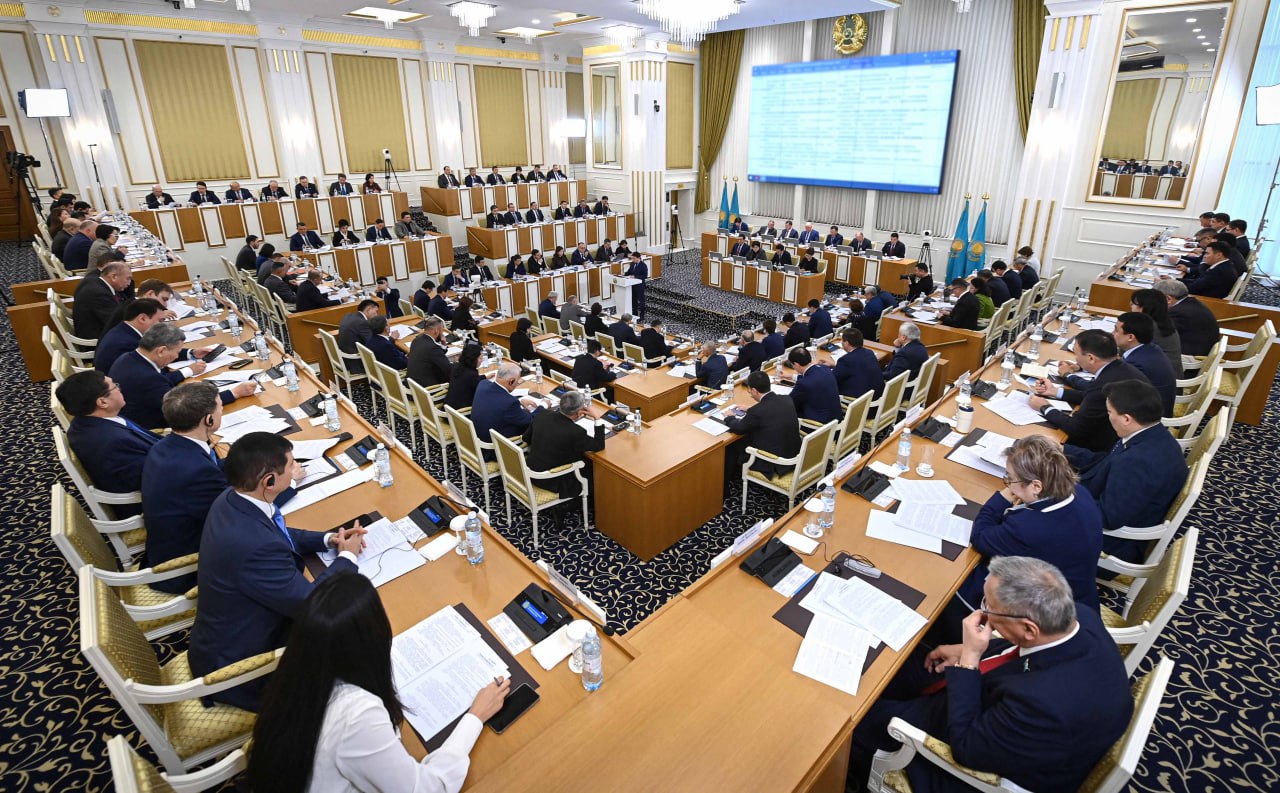Workshop on 'Decarbonisation: common goal, different paths
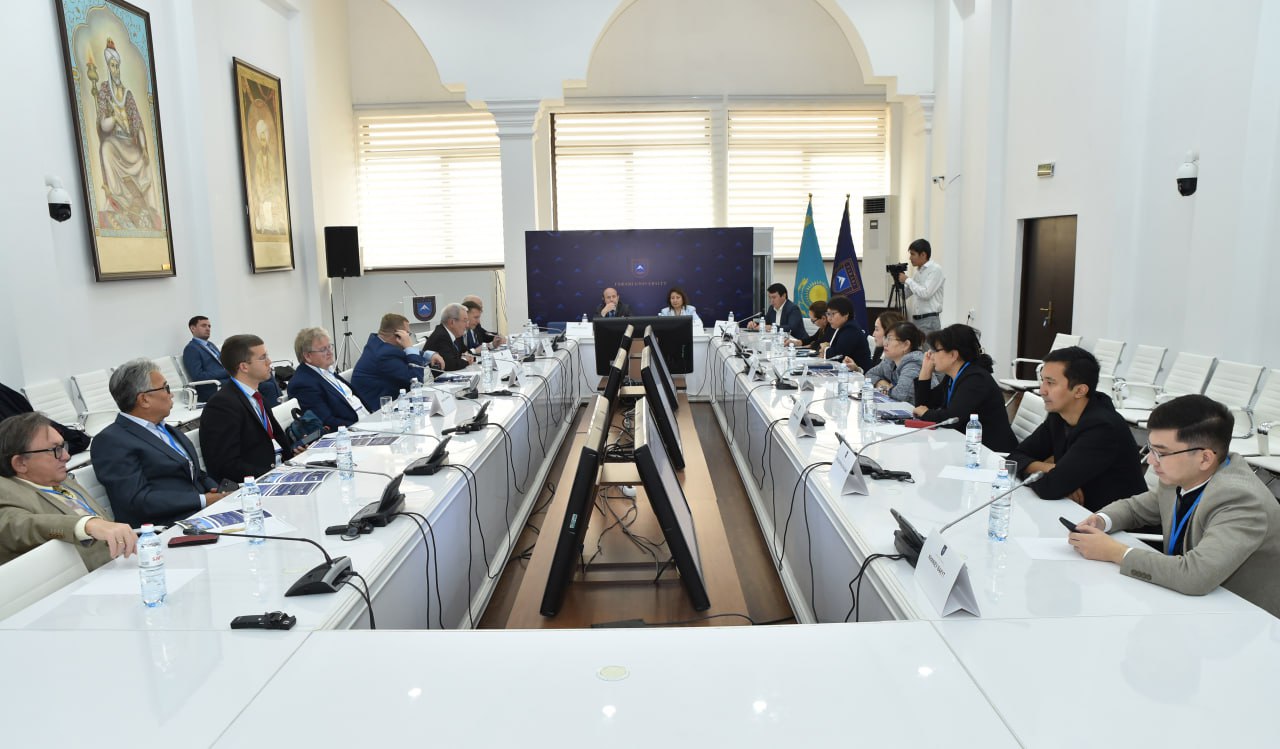
The two-day international seminar "Decarbonisation: Common Goal, Different Paths' started its work at the Farabi Library, bringing together foreign scholars, experts from the EU, Central Asia and Russia, as well as representatives of the public sector to discuss topical issues related to decarbonisation processes from a global and local perspective.
The event was organised in preparation for the international scientific conference 'Energy of the XXI Century: Economics, Politics, Ecology', organised by Al-Farabi Kazakh National University and the Energy Aspects of Kazakhstan Centre.
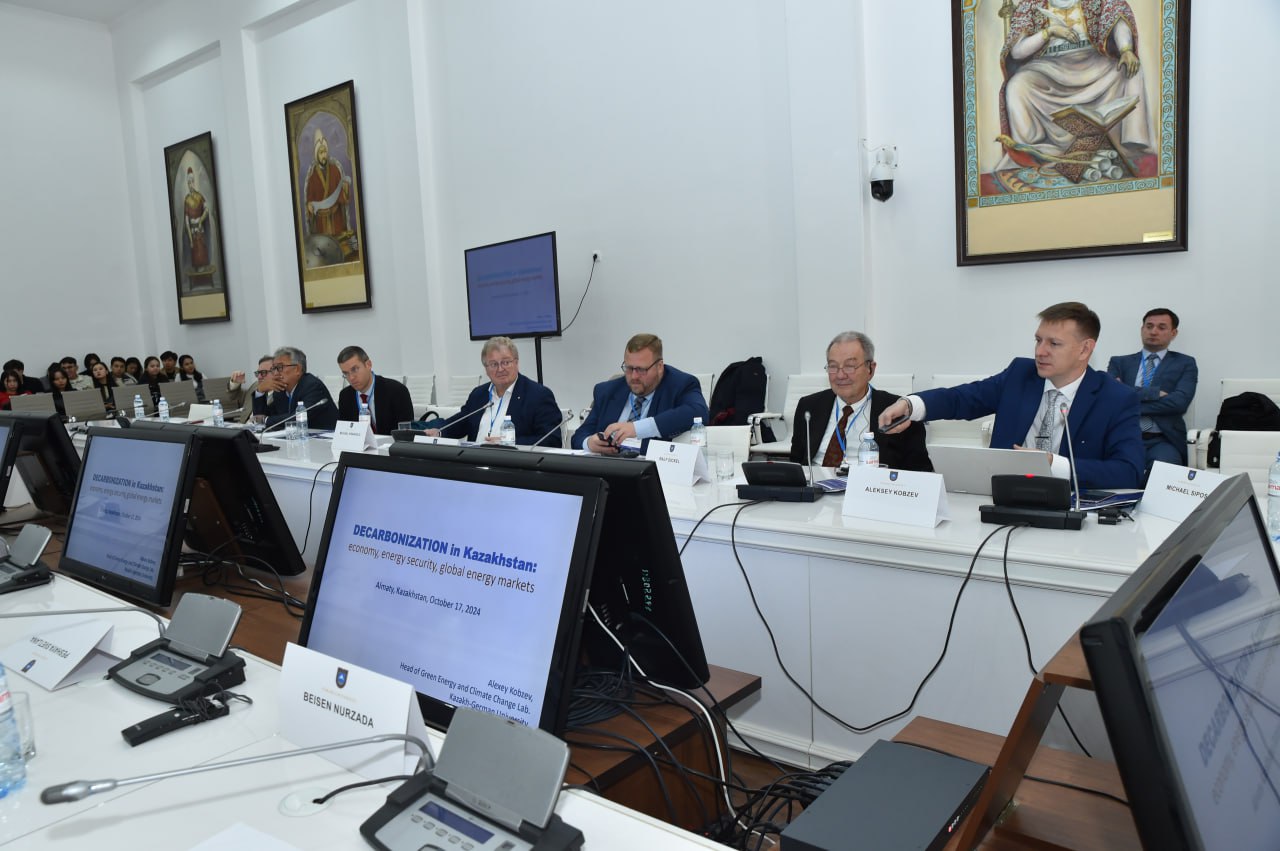
Welcoming the participants, Zhamila Aitzhanova, Member of the Board - Vice-Rector for Scientific and Innovative Activities, noted the importance of global efforts to combat climate change and preserve the Earth's ecosystem. As a leading scientific and educational institution, KazNU is also actively involved in addressing this issue. In 2011, the university launched a programme to train personnel for the electricity industry at the Department of Plasma Physics, Nanotechnology and Computational Physics. Currently, the university has graduated more than 400 electrical engineers who are successfully working in the country's energy sector. Under international agreements, KazNU actively cooperates with universities and research institutes in the field of energy. The international seminar will be a platform to discuss the impact of differences in economic development and geographical data on technological and economic paths to decarbonisation", - said Vice-Rector Zh. Aitzhanova.
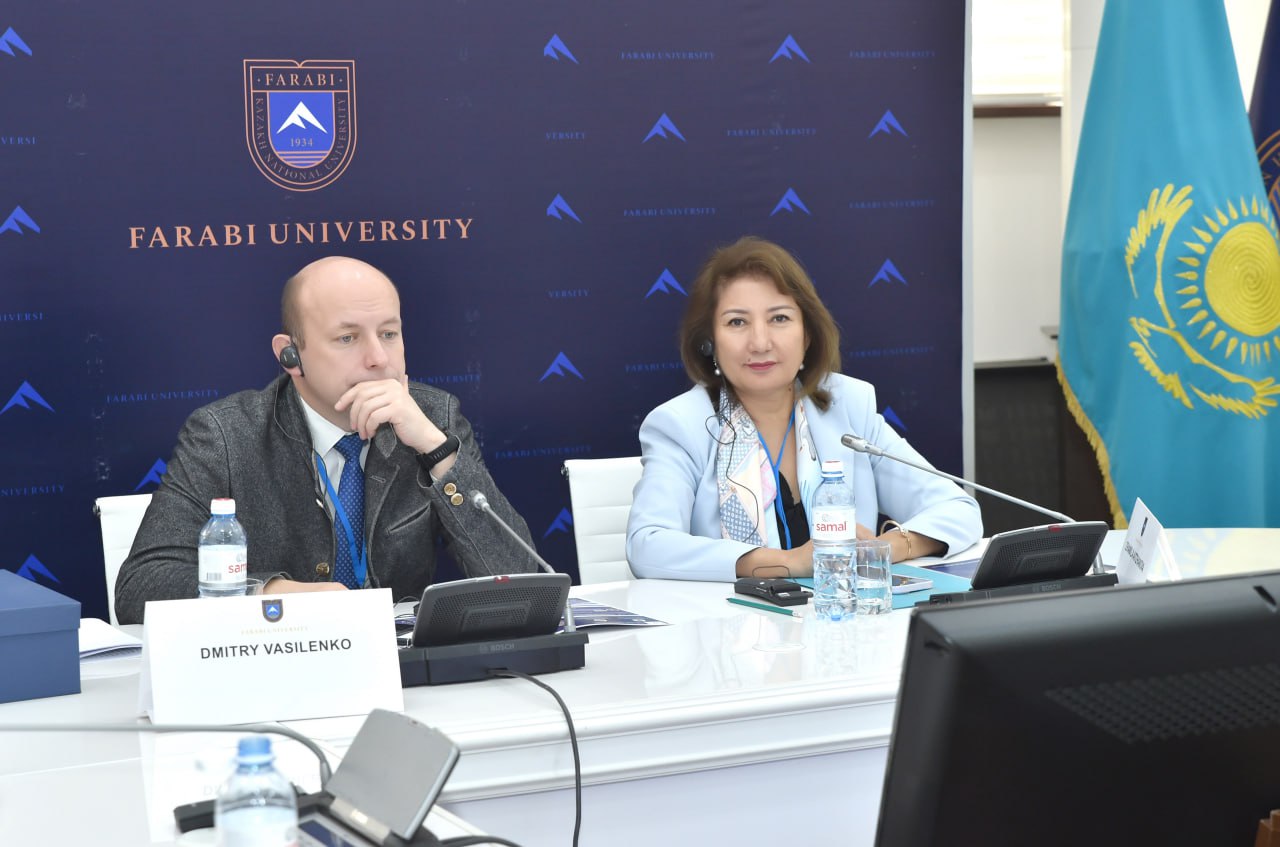
A letter from the Minister of Energy of the Republic of Kazakhstan was also read at the plenary session. Welcoming speeches were delivered by the following speakers: Dmitry Vasilenko, Vice Rector for International Relations of the St. Petersburg State University of Economics, Deputy Chairman of the ISC Energy 21 Organising Committee, Almaz Abildaev, Director of the Energy Aspects of Kazakhstan Centre, and others. The speakers agreed that the introduction of innovative technologies in decarbonisation will not only facilitate the transition to a low-carbon economy, but also open new horizons for research and development. An important aspect of decarbonisation solutions is collaboration between academic institutions, government agencies and business. Such collaboration will create synergies that will enable faster achievement of goals.
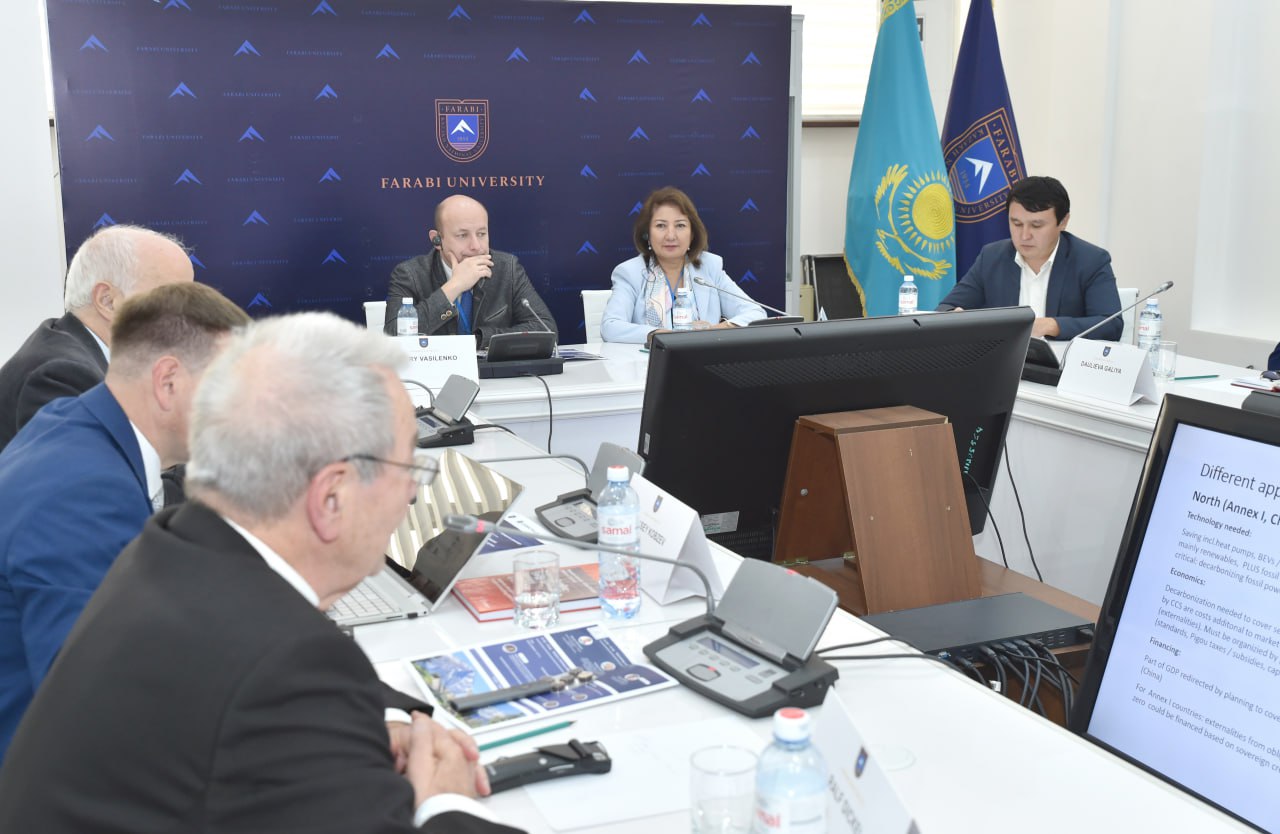
According to the organisers, the aim of the workshop is to discuss strategies and ways to achieve carbon emission reduction targets, which have become an important aspect of sustainable development policies at both national and international levels. The issue of climate change is a global challenge, and the Paris Agreement suggests that each country should individually strive to achieve the goal of limiting the temperature increase to 2°C, and if possible 1.5°C, which is captured in the NDCs (Nationally Determined Contributions). The challenges faced by each country vary according to climate zone, primary energy resources, geographical location and history. The main difference, however, is economic development in relation to energy consumption and greenhouse gas emissions.
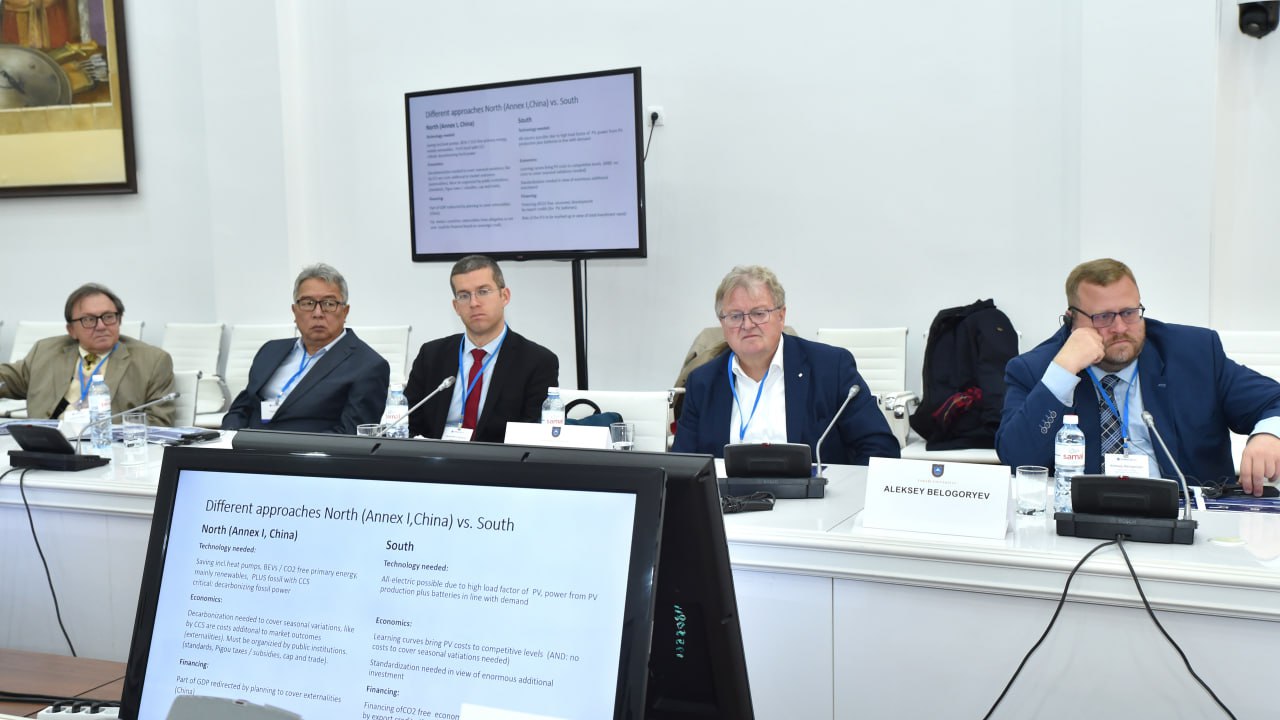
The workshop included sessions on 'Technological approaches and their combinations for different countries', 'Decarbonisation experiences from different regions', 'Decarbonisation pathways based on economic development and geographical characteristics', as well as panel discussions, including for young scientists. Thanks to the hybrid format of the workshop, expert participants from all over the world were able to join the discussions, exchange experiences and views on key issues and consider different approaches to decarbonisation, including the introduction of renewable energy sources, energy efficiency, etc.
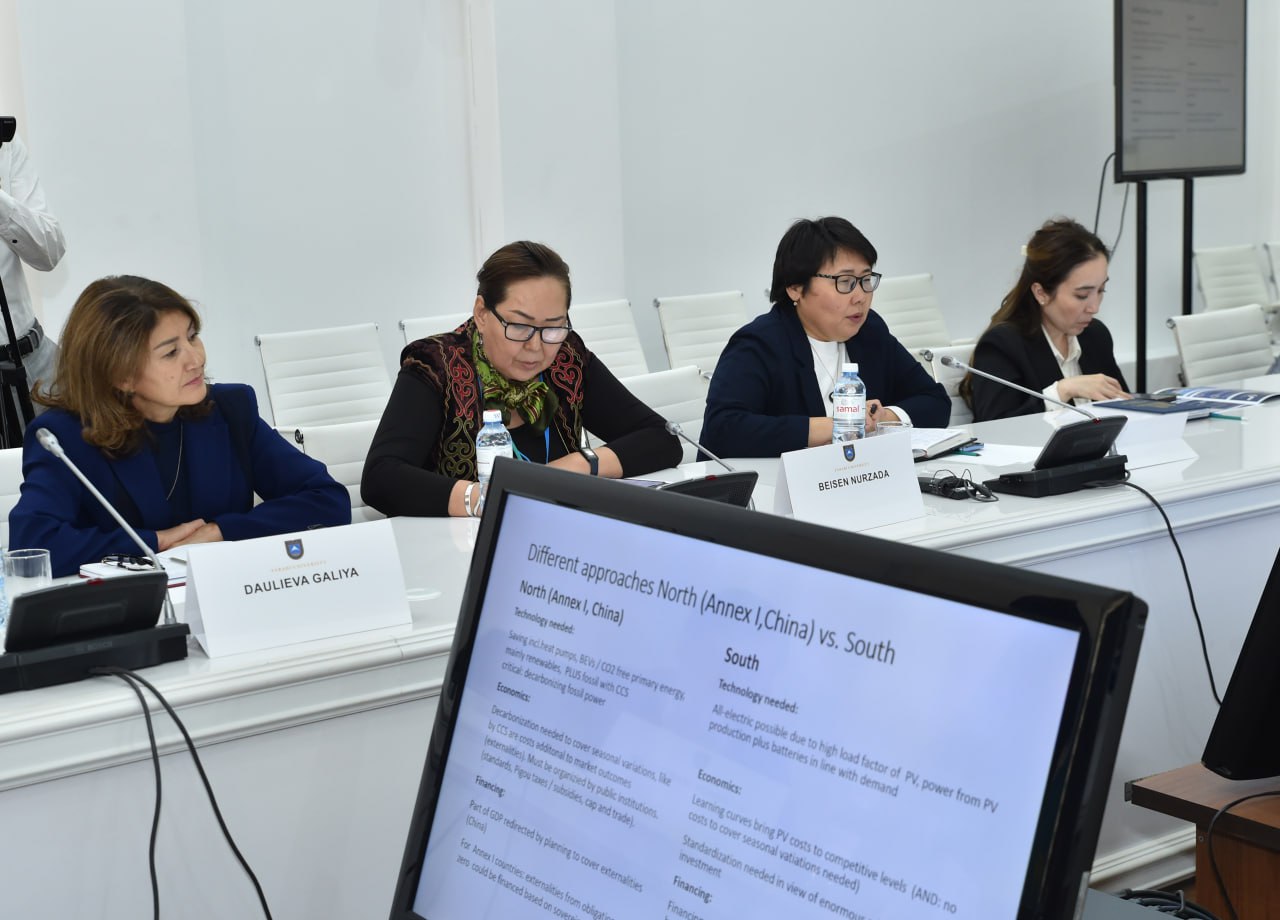
The international workshop 'Decarbonisation: Common Goal, Different Paths' was an important step towards a sustainable energy future and initiated further cooperation between various international and national organisations. Participants expressed their hope that the ideas and initiatives discussed will contribute to the development of effective decarbonisation policies and the introduction of innovative technologies in Kazakhstan and beyond.
Press-service of Al-Farabi Kazakh National University
